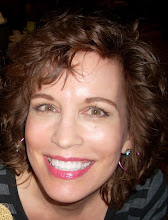I really like wazzup, as in hey dude, wazzup? I also like meh. It totally captures that lackadaisical feeling, as in how are you doing….meh. For me, slang is the embodiment of language’s fluidity. And English is one of the most fluid languages ever. And weird and odd.
As a comic once said, why do we park on a driveway and drive on a parkway? Why put a comma before “too” at the end of a sentence but not after “also?” (Although the “too” rule has changed in some people's mind…the last editor I had said I could do either way but I must choose. Another example of fluidity.)
I’m reading a book that is fascinating but probably one of the most pompous I’ve ever encountered, so I will not be naming it. The author traces the history of words and how they’ve changed over the years. That’s the fascinating part. The not so great part is his belief, stated strongly and often, is that some words are better than others, and when in doubt use a fancy one.
I don’t agree. When I hear someone using a “fancy” word it’s almost as if that person is looking around to see if I “got” that it was fancy. Inside I’m thinking yeah, I heard it, yeah you’re smart, and do you want me to ask what that word means so you can explain it to me?
This author thinks writers should do the fancy. I disagree even MORE with that. In my opinion, a writer’s job is to take the reader somewhere else. If a reader is forever puzzling over a word that takes him or her out of the story that’s not good. As a reader myself, an interesting word now and then is fun. A skillful writer can use the word in context so the reader can figure it out. But more than a few and my attention wanders.
I try not to do this and I never mean to, but I’ve been admonished for using a word someone might not know and I’m glad my editors pointed it out. After all, I’m writing for my readers as much as for me. And I don’t want them to say huh? or worse, feel stupid because they don’t know the word.
I don’t celebrate illiteracy, but I also don’t laud the reverse. If I’m choosing, I’d much rather spend time with an interesting person with a 6th grade education that a PhD with a case of intellectual snobbery.
But in the end, I guess that’s what makes people so fascinating. After all, that author I’m reading would make a great character. I might have to kill him off in the first chapter, though.
:-)





